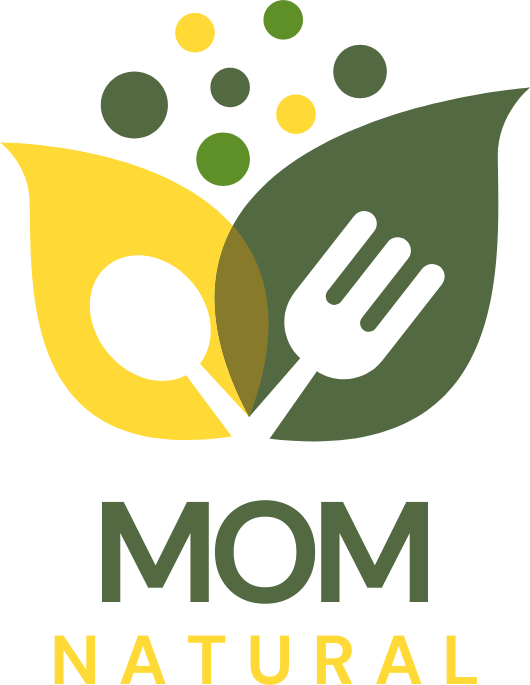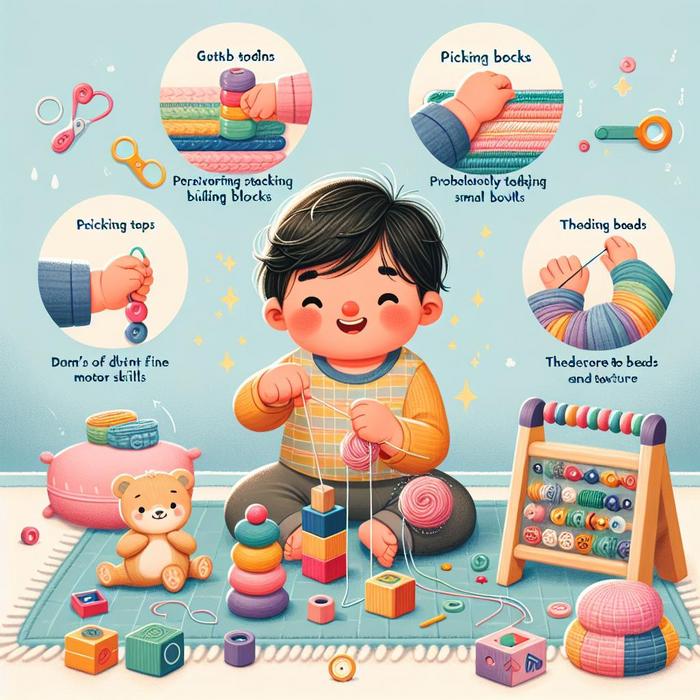Introducing Fun and Engaging Activities for Developing Hand Skills
Developing fine motor skills in babies is an essential part of their early growth and development. It’s vital to incorporate activities that can assist in enhancing these skills. Here, we are sharing some tried and tested baby activities that have proved to be effective in encouraging fine motor skills. Let’s explore them together!
Why are Fine Motor Skills Important in Babies?
Fine motor skills refer to the ability to make movements using the small muscles in our hands and fingers. These skills are crucial for a baby’s growth as they contribute to numerous critical facets of their daily life: from grasping a spoon and self-feeding, to holding a crayon and drawing, to picking up small objects for sensory exploration. It’s never too early to begin fostering these skills in your baby’s life, and the first year is especially critical. For a more in-depth look at the importance of fine motor skills, consider this insightful article.
Fine Motor Skills Tips: Our Favourite Baby Activities
We have found a number of activities that have been instrumental in nurturing our baby’s fine motor skills. Here are our favourites:
- Sensory Bins: Sensory bins filled with different textured materials like rice, pasta, or water beads were a big hit. They not only promoted hand-eye coordination but also provided a sensory play experience.
- Puzzles: Simple wooden puzzles are excellent for developing hand skills. They encourage hand-eye coordination and problem-solving abilities.
- Finger Painting: This is a fun and messy activity that babies generally enjoy. It enhances creativity, hand flexibility, and coordination, and it’s a fantastic sensory exercise.
- Building Blocks: Building and stacking blocks can help improve hand skills and encourage spatial awareness.
For more inspiration on engaging activities for babies, explore these carefully curated Pinterest boards.
How to Incorporate These Into Your Baby’s Daily Routine?
Incorporating these activities into your baby’s routine need not be a daunting task. Start by picking one activity and introduce it in a fun and relaxed way. You could consider setting up a dedicated playtime each day for these activities. For helpful tips on how to create a balanced schedule that includes stimulating activities like these, check out our helpful guide.
Remember, the key is to make these activities enjoyable for your baby. Your enthusiasm and engagement in these activities will motivate your baby to participate and explore, nurturing their fine motor skills naturally.
Celebrate small victories and make sure to keep varying the activities to maintain your baby’s interest. Additionally, keep an eye out for cues from your baby. If they seem overwhelmed or frustrated, it may be best to take a break and try again later.
Every Baby is Unique
While we’ve shared some tips and activities that worked for our baby, it’s crucial to note that every child is unique. What works for one may not work for another. Keep trying different activities until you find what your baby enjoys the most. For additional ideas, you might want to visit this Reddit thread.
Remember, the ultimate goal is to provide a nurturing environment that promotes your baby’s growth and development. So, don’t fret too much about milestones. Instead, focus on creating joyful moments with your little one and let them explore the world at their own pace.
Finding the Right Activity for Your Baby’s Age and Interests
A plethora of activities could facilitate the development of your baby’s fine motor skills. However, it is important to choose activities that are versatile, safe, and relevant to your baby’s age group and interests. Young infants, for instance, might respond well to tactility of play mats, soft toys, and teething rings. As your baby grows, activities like playing with textured balls, making noise using musical toys, and exploring shape sorters can help improve their hand skills.
The interest level of your child in an activity is a significant factor as well. Babies tend to learn better when they are mentally stimulated and engaged. Always ensure that the activities you engage your child in are dynamic, creative, and enjoyable.
For a comprehensive list of age-specific activities to help your baby’s fine motor skills development, check out the resources provided by Your Therapy Source, My Little Moppet, and The Imagination Tree.
Fine Motor Skills in Relation to Other Developmental Skills
Fine motor skills development is closely tied to other areas of your baby’s growth. As your child improves their motor skills, they will simultaneously enhance their cognitive and sensory abilities. The ability to grab and manipulate objects will, for instance, open up an entirely new world for their sensory exploration. They can feel the texture of different materials, differentiate between shapes, and realize how different objects work.
Moreover, the development of fine motor skills aids in boosting your baby’s independence. The ability to feed themselves, hold up a toy, or turn the pages of a picture book grants them more control over their environment. In return, this will have a positive impact on their self-confidence.
Encouraging a Lifelong Journey of Learning
Starting your child’s journey in establishing and mastering their fine motor skills is an investment in their future. The skills they develop in their infancy lay the groundwork for their academic success and their ability to perform daily functions. Writing, for instance, is a sophisticated example of a fine motor skill that begins with these early exercises.
Nurturing your child’s fine motor skills at a young age also instills a love for learning and exploration. By engaging your baby in dynamic and stimulating activities, you are setting them on a path of curiosity and discovery. This positive mindset towards learning will stay with them as they grow and encounter more complex challenges in life.
Finally, a rich selection of heartening stories from parents and their experiences of nurturing their children’s fine motor skills can be gleaned from this useful blog.
Remember, it’s all about relishing the journey and not focusing on the destination. The time spent engaging with your little one in these activities is significant in itself, which should always be filled with laughter, love, and learning. It’s all about creating a warm, loving space where your child can grow, explore, and make the most of their early years, all while developing their fine motor skills.

